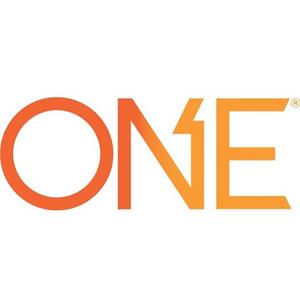A Sweetener Struggle: Polarizing Views on Sugar Alcohols Shape Bar Industry

If there’s a single food category in which the ongoing battle between calorie reduction and natural formulations can be easily viewed, it’s the nutrition bar. Here athletes seek calories to fuel their pursuits without unnecessary sugar causing spikes and crashes, while everyday consumers strive for sustenance and satiety while trying to keep the weight off.
Sweeteners fuel one of the key skirmishes: It’s here that a lab-generated but highly effective class of ingredients called sugar alcohols — also known by the names erythritol, glycerol, hydrogenated starch hydrolysates, isomalt, lactitol, maltitol, mannitol, sorbitol and xylitol — are increasingly being used. While they’ve powered a good number of successful, indulgent-tasting but reduced calorie brands (Halo Top comes to mind), sugar alcohol use in the bar space has skyrocketed. SPINS data shows that last year the naturally-derived sugar alcohol erythritol saw its use in wellness bars increase tenfold compared to the previous year, showing the highest growth of any sweetener class. The sugar alcohol market as a whole, according to a report by Persistence Marketing, is forecast to reach almost $1.4 billion by 2026.
But not everyone is convinced sugar alcohols are the sweet solution to the food and beverage industry’s sugar problem, and their inclusion — or exclusion — in different recipes is indicative of a variety of business strategies that companies think will help them reach different user groups.
For some, there are drawbacks over health concerns. Research shows that eating large quantities of certain sugar alcohols can cause gastric irritation, especially for consumers who are already susceptible to such issues. Sugar alcohols are also more effective with uniform products, like traditional protein bars, than in whole fruit and nut inclusion bars held together with a liquid syrup.
Grace Venus, the founder of Venus Research and Development, told NOSH that formulating with sugar alcohols is expensive and does not work best when looking for an intense sweet flavor. Still she said, sugar reduction is the top concern for her clients, and sugar alcohols are a good route to that result.
That doesn’t mean they’re easy to understand, which is another drawback, explained Melissa Abbott, of the Hartman Group.
“Sugar alcohols are not an ingredient consumers can imagine making in their kitchen or see growing out of the ground or off a tree,” Abbott said. “Sugar alcohols tend to connote science and lab-formulated, creating a disconnect with the average consumer seeking easily pronounceable and identifiable ingredients.”
Sugar alcohols are carbohydrates with a chemical structure that partially resembles sugar and partially resembles alcohol, and they are derived through one of two chemical processes: one is natural, from a wide variety of fruits and vegetables, and the other is commercial from other carbohydrates such as sucrose, glucose and starch. The result, according to Hartman, is that even though some sugar alcohols can be called natural, they might not carry the kind of aura that the natural customer is looking for.
With sugar reduction a top consumer need, however, bars makers are trying to learn the best possible use of these ingredients, while avoiding the possibility of alienating consumers who are used to the taste and texture of their legacy nutrition products.
Market research group SPINS found the sector of performance bars with the highest sales to be those made with artificial sweeteners; the sector with the highest growth comes from bars made with a combination of natural and artificial sweeteners.
Here’s where the target consumer comes into play. For athletes, Abbott said the primary motivation is about the nutrition facts panel rather then ultimate purity in an ingredient deck.
“They are seeking low sugar grams above all else,” she said. “This sugar alcohol consumer is generally not interested in naturally sweetened bars where dates or other dried fruit plays a primary role.”
Still, the collision of seemingly complementary consumer preferences — the desire to cut sugar and the desire to have a “clean label” — has actually created a conundrum for nutrition bar makers, and they’re making tough strategic decisions regarding the use of sugar alcohols.

Three leading nutrition bar brands have taken three different approaches. Take ONE Brands, whose namesake ONE Bar, which is made with sugar alcohols, is the foundation of the brand. To reach an audience seeking more natural sweeteners, the company launched the Basix line — formulated with stevia and are free of gluten, sugar alcohols and sucralose — earlier this year. Only a few months later, the line found rapid distribution growth, adding over 3,000 GNC locations and 750 Vitamin Shoppe stores, a retailer in which athletes have traditionally turned to for higher performance rather than natural foods.
Meanwhile, Forward Foods’ whey-centric protein bar maker Detour Bar, which came to market in the early 2000s, also recently created alternative versions of its original bar line. In 2015 the brand rolled out the protein-focused Simple line made with no artificial sweeteners or artificial flavors, no sugar alcohols, no trans fats and no GMOs. The Simple line — like ONE’s Basix line — embraces a similar texture and formation of its legacy product, while cutting out some of those “bad player” ingredients.
The success of its Simple line indicates that the clean label movement might be more powerful, even, than the need for functionality, Forward Foods CEO Patrick Muldoon explained, noting that all of Forward’s new products will be made with stevia. He explained that because consumers have been so impacted by the organic and clean label movements, the company did not want to have to “convince” consumers about the health benefits of any of their products. However, he added, the shift has been slower then expected.
“If you asked me four years ago where we would be today, I would have said we would be seeing 80 percent clean deck sales [by now],” Muldoon said. “We’re not. It’s more 50/50. The legacy channels still embrace that old product.”
For stevia in performance bars, the category itself is small — it brings in under $5 million of the categories $177,202,801 in sales — and has seen modest 30 percent growth.
Another protein bar maker, Quest, will stay the course with sugar alcohols, according to CEO Dave Ritterbush. Quest has always formulated its sweetened products with erythritol paired with stevia.
“Sugar alcohols have been used for the last 20 to 30 years,” Ritterbush told NOSH. “The populace is accustomed to them and we believe they will continue to be present in the foods we eat. That said, we hope that consumers will begin to understand the difference between chemically derived and naturally derived alcohols.”
Abbott advised that brands using sugar alcohols need to be particularly clear with consumers about their ingredient deck. Though there is no data to support whether sales are affected when a brand uses sugar alcohols, not being transparent about how a product is low sugar could lead to consumer confusion or even a lawsuit. That was the case with diet snack and meal company Atkins Nutritional Inc. — which was sued last year for allegedly misleading consumers with special “net carb” labeling. Net carbs are the key metric for sugar alcohols, because they aren’t digested normally and are believed to have a lower effective carbohydrate impact.
For now, Abbott said, in their quest for performance enhancing products, consumers are currently willing to overlook sugar alcohol inclusions. But that may not always be the case, she added.
“The desire for low sugar grams has created a unique space in the bar category for sugar alcohols,” Abbott said. “But over time, we anticipate another sweetener that supports the microbiome rather than potentially compromises will likely take its place.”


















